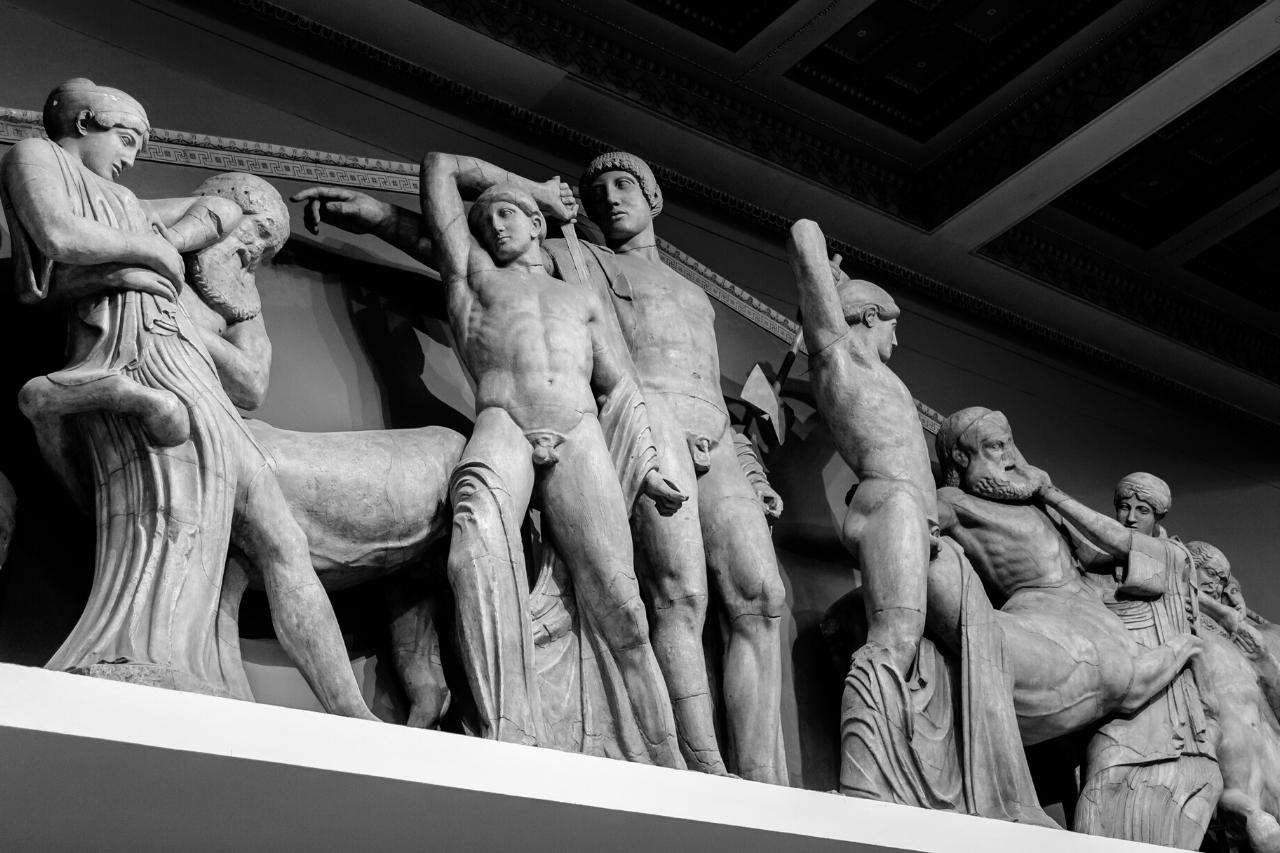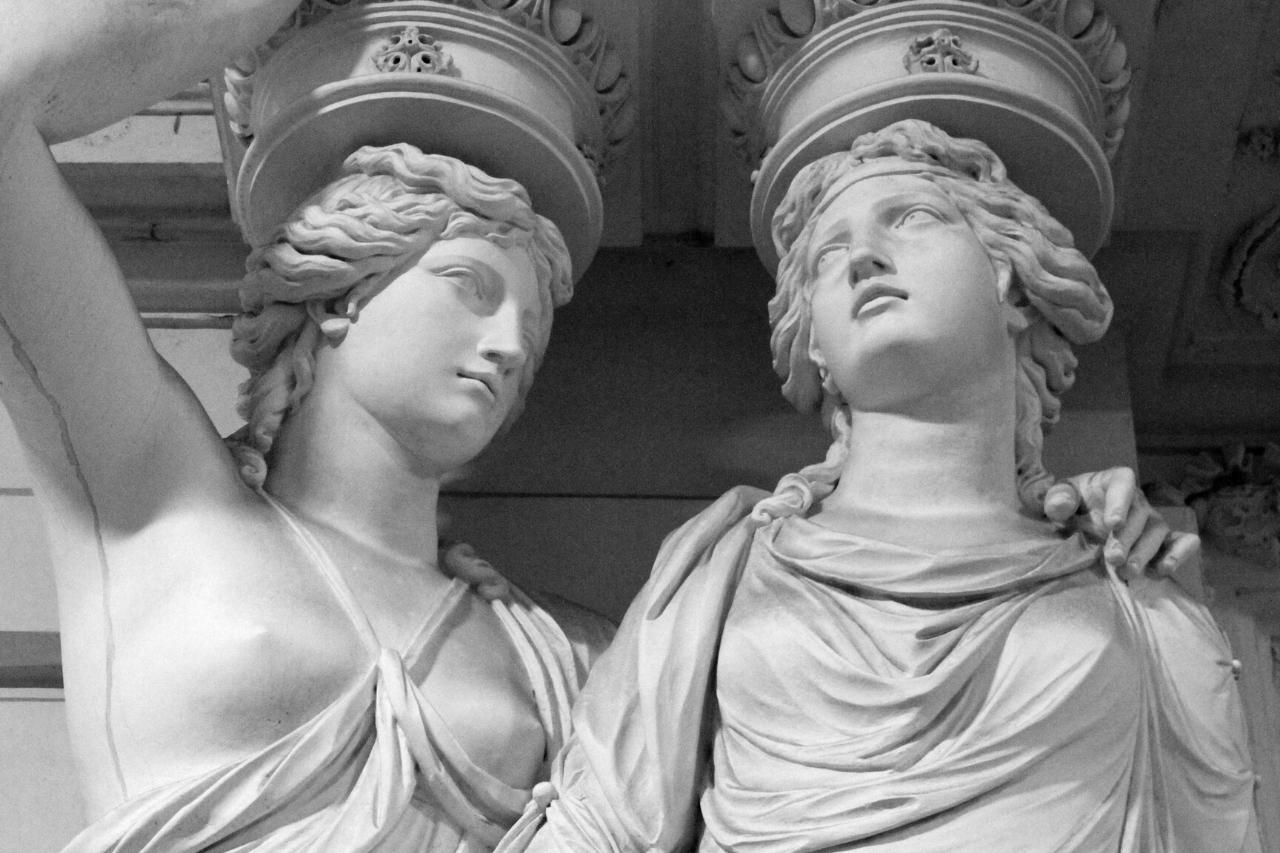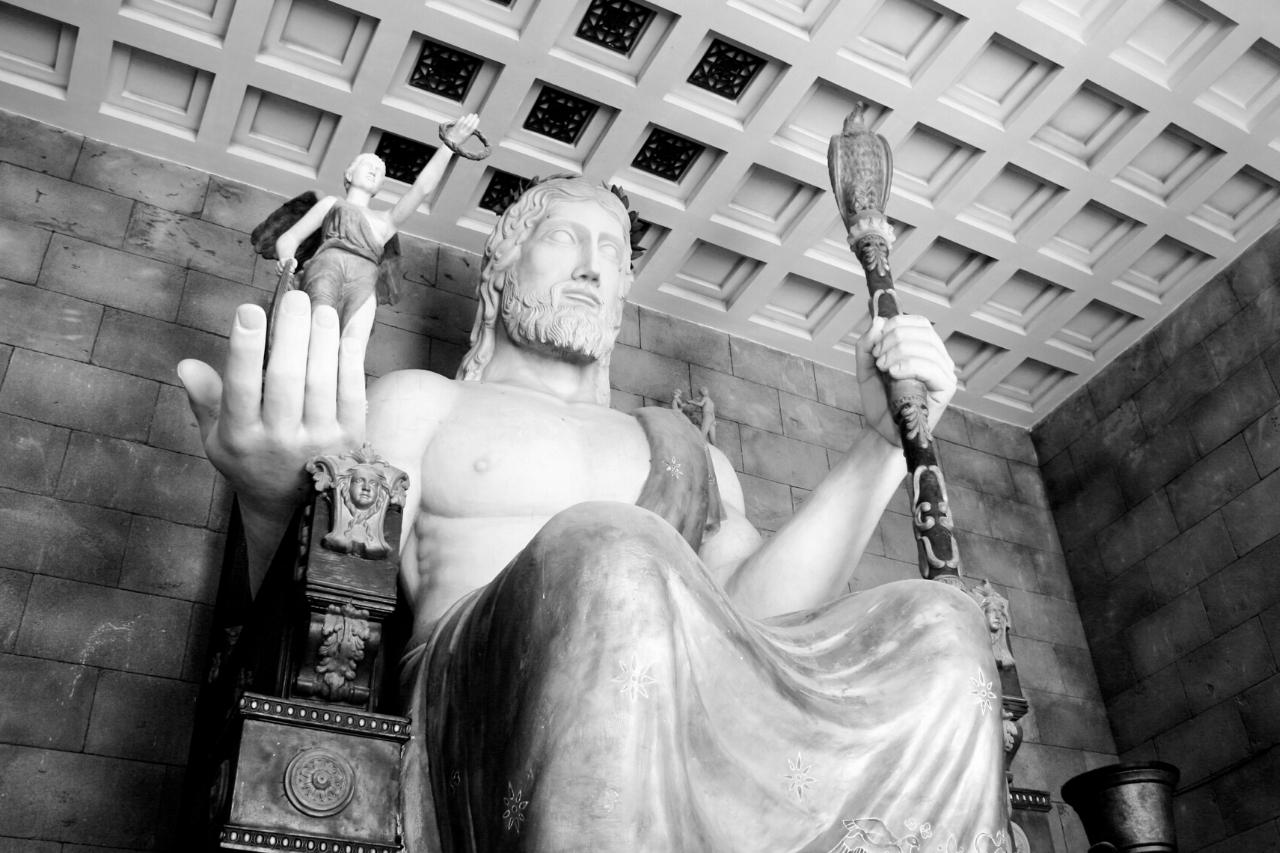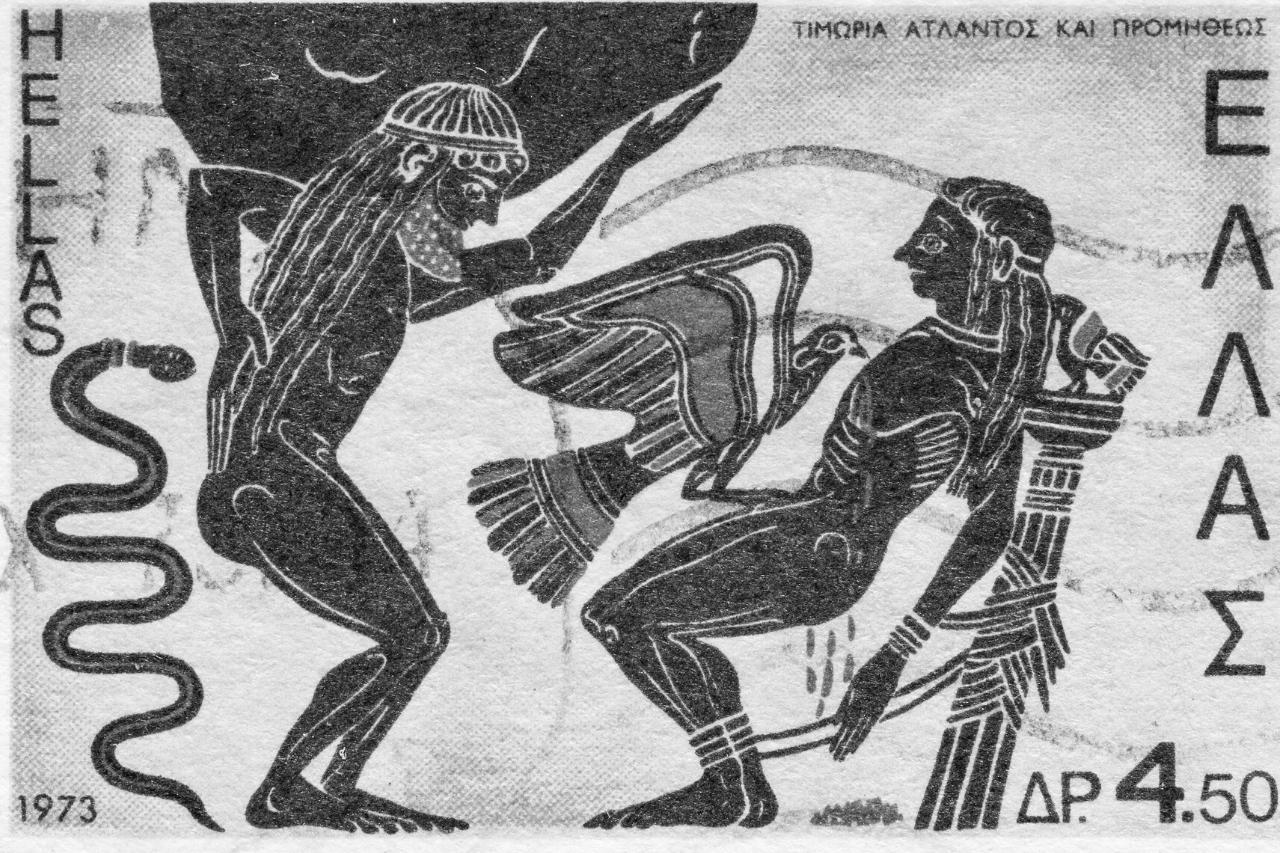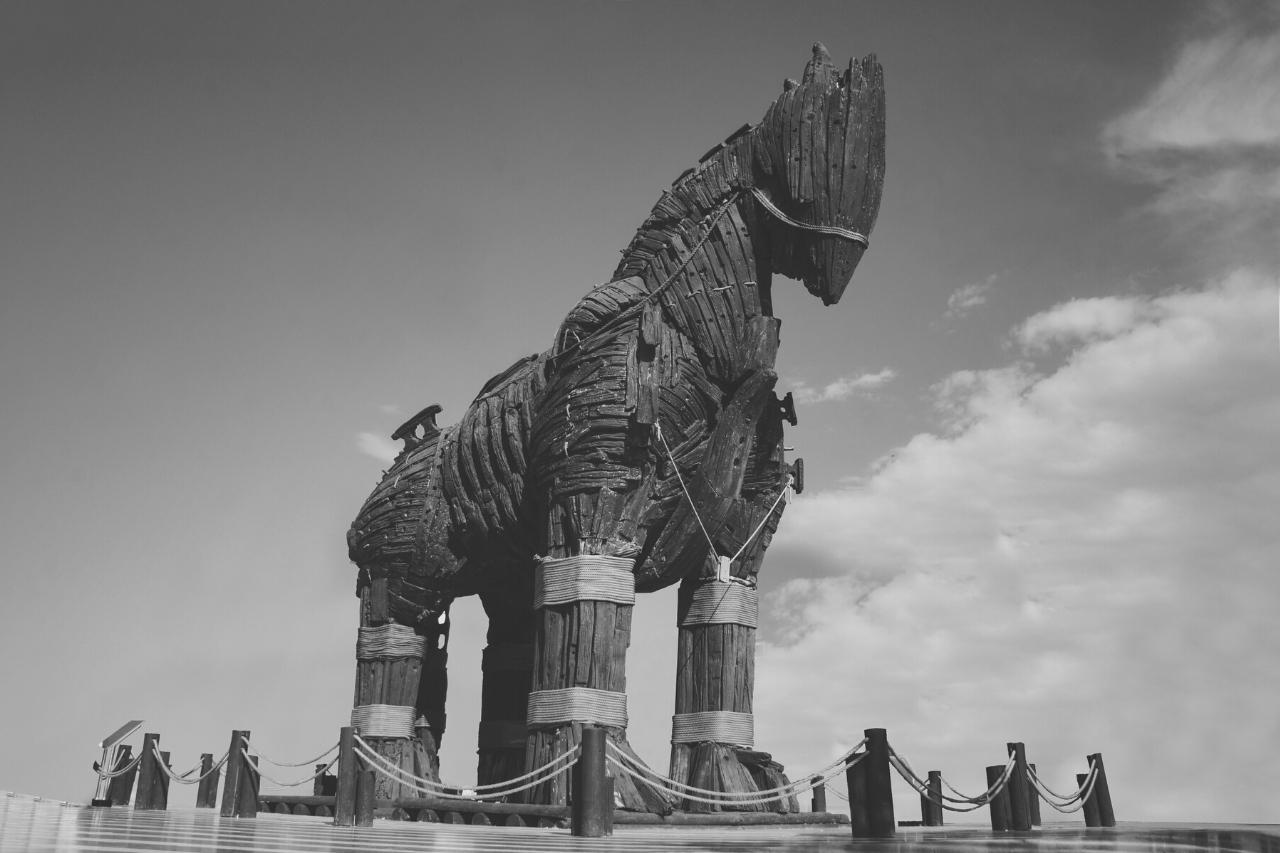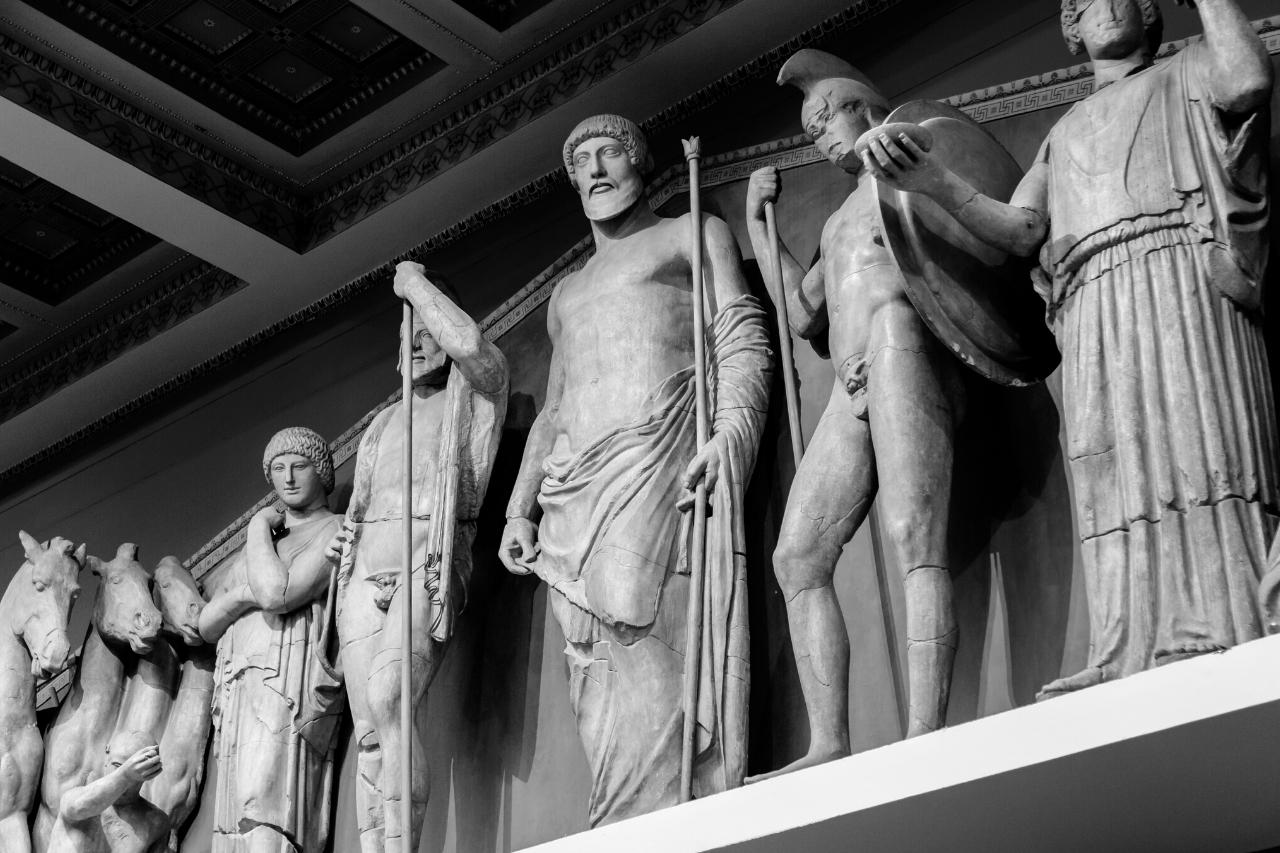Greek Mythology Timeline: A Thoroughly Concluded Record
The Greek Mythology Timeline consists of heroes, villains, mythological creatures and deities.
The timeline is spread over five major ages/episodes, each containing important wars and conclusive events. In this article, we will take you through each age and its important characteristics and events, in-depth.
All the information gathered here has been carefully sourced and categorically used to bring you a complete timeline.
Greek Mythology Timeline
The Greek Mythology Timeline consists of many different events and characters. Here is a table of all five of the major periods in the Greek Mythology timeline, in order of their occurrence with the age’s important rulers, wars, and events.
Age | Ruler | Important Event |
Creation | Uranus | Castration of Uranus |
Gold | Cronos | Titanomachy |
Silver | Zeus | Creation of Mortals |
Bronze | Various | The Flood, Trojan War |
Iron | Various | Foundation of Rome |
To completely understand the Greek Myth and its timeline it is important to first get familiar with the origin story of the mythology. Since the mythology is archaic, the authenticity of its narration has been somewhat doubted.
The Origin
The Greek Mythology came to light when a couple of famous Greek poets wrote poems on some of the events that occurred in the mythology. These poets include Hesiod and Homer, both belonging to the 8th century BC. The famous poems of Hesiod include Theogony (Origin of the Gods) and the Works and Days whereas Homer contains the Iliad and the Odyssey. These epic poems became the basis of Greek Mythology.
Homer and Hesiod played a very important role in narrating Greek Mythology through their poems. However, the poems did not provide a complete story but only the bits and pieces of important events. For this reason, many other poets stepped in and with their poetic works completed the Epic Cycle of Greek Mythology.
The Greeks believe that mythology is their religious duty and any knowledge they have about it is through the poets and some ancient Greek artifacts that were found at various excavation sites. The literary and the archaeological evidence found were then assembled to form a complete timeline of events in Greek Mythology.
Major Ages
Greek Mythology includes the birth of this universe and how immortals were born. It further transcends into the formation of the Earth and its inhabitants, the mortals; therefore, the mythology can be neatly distributed among five major ages. This distribution is chronological and includes important events, rulers, deaths, and formations. Let us look at each age in detail.
Creation Age
Hesiod in his poem Theogony explains the origin of the universe and the gods. The creation age is the age when the universe was born from a dark void called Chaos. Chaos is described as nothingness.
In this Chaos emerged Gaia, the Earth, and along with her came some other divine beings namely Erebus (personification of Darkness), Eros (Love), and The Abyss (the Tartarus). Without any male presence, Gaia gave birth to her counterpart, Uranus (the Sky).
Together Uranus and Gaia bore six male Titans: Coeus, Crius, Cronus, Hyperion, Iapetus, and Oceanus, and six female Titans: Mnemosyne, Phoebe, Rhea, Theia, Themis, and Tethys. Among these titans, Cronus was the youngest and most mischievous. Even though Gaia and Uranus agreed on creating no more Titans, Cyclopes (One-eyed creatures) and the Hecatonchires (Hundred handed creatures) were birthed followed them.
After looking at them, Uranus ousted them to the Abyss.
Castration of Uranus
When Gaia came to know about it, she was furious. She convinced Cronus to castrate Uranus and in return, she promised him the rule over the Titans. That night when Uranus lay in bed with Gaia, Cronus came and castrated his father. He tossed his genitals into the sea, leaving Uranus to die.
After killing Uranus, Cronus claimed the throne for himself and his sister-wife, Rhea. All the other Titans became his court. Cronus ruled over the kingdom and took control of the land, sky and sea, without any remorse for killing his father, Uranus. Gaia lived in harmony with her children and looked after them.
Golden Age
The age after the creation of the Titans and the universe is called the Golden age but this age is famous for one of the most brutal wars among the Titans. After Cronus acquired the throne for himself, he ruled in fear. He feared that as he killed his father and got the throne, his offspring would also kill him and acquire his throne. So because of this reason, whenever Rhea bore an offspring, Cronus would eat it.
Rhea became very sad and furious with Cronus as he had taken so many offspring away from Rhea. Rhea tricked Cronus by hiding her latest offspring and putting a stone in his place. Cronus ate the stone and went on with his business. The saved baby was Zeus.
Zeus was kept hidden from Cronus in a cave in Crete. He was raised by Amalthea and the Meliae. Zeus was taught how to fight and also told the truth about his father, Cronus and mother, Rhea and also about what Cronus had done to his siblings before him.
The Titanomachy
After Zeus became of age, he became the cupbearer for Cronus according to the plot he had made to overthrow Cronus. One day, Zeus gave Cronus a drink made of mustard and wine. Cronus started to vomit and as he threw up, he threw up the swallowed siblings of Zeus. After freeing his siblings: Hestia, Demeter, Hera, Hades, and Poseidon, Zeus declared war against the first generation of Titans.
The Titanomachy is thus a ten-year series of fierce battles fought between the Titans (the older generation that lived on Mount Othrys) and the Olympians (the newer generation that would live on Mount Olympus). War of the Titans, Battle of the Titans and Battle of the Gods are some other names of this war.
The war was fought to decide the ultimate takeover of the Titans or the Olympians over the sky, land and sea. The Olympians had Cyclopes and Hecatonchires on their side in addition to Themis and his son Prometheus, all of which were Titans.
After a long ten-years time, the Olympians won and gained control over the realm. Some Titans were imprisoned, some were sent to Tartarus and some were killed. The three brothers: Zeus, Poseidon and Hades divided the world among them.
Zeus took control of the sky and air and was known as the Prime Ruler, Poseidon was given control of all the seas and water bodies whereas Hades was given the control of the Underworld. The Earth was not given to any one of the brothers but was kept as neutral ground for anyone to come and go as they pleased.
Silver Age
The Silver Age is an important age as during this time the Mortals came into being.
But why was the creation of Mortals necessary?
As Zeus was now the Prime Ruler, he was afraid of the same fate as Cronus and Uranus. The father-son conflict that had been passed down through generations was a major concern for Zeus.
Like what Cronus did to his offspring, Zeus swallowed Metis, his wife, when she was pregnant with their first child, Athena. According to the myth, Metis burst forth from Zeus’s head with Athena and was fully ready to wage war against Zeus. Zeus lived with the fear of his offspring overthrowing him but instead of killing them, he let them live in harmony.
Creation of Mortals
In the Titanomachy, Prometheus, a titan, fought from the side of the Olympians. Zeus spared Prometheus and instead ordered him to create mortals on Earth and so he did. Prometheus made man out of mud and Athena, Zeus’ daughter, breathed life into them. The Earth soon became populated with mortals and the Titans, now referred to as the gods of the mortals, had another passing time.
The gods would visit Earth frequently and impregnate beautiful women. The offspring born would have superhuman powers and abilities, and because of this absurd reason, many demi-gods were born on Earth at various locations like Egypt, Arcadia, Athens, etc.
The mortals walked the Earth and led common lives. They had to fetch food and water, work all day, and face calamities that the gods had decreed upon them to test their patience. Regardless of the hardships faced, the gods and goddesses were worshipped wholeheartedly, asked for blessings, and prayed to on a daily basis.
Bronze Age/The Heroic Age
The fourth age is known as the bronze age. Zeus was the prime ruler over the Earth and the Sky. His brothers, Poseidon and Hades, controlled the sea and the Underworld, respectively.
The mortals lived on Earth and soon after their arrival, they began to form their own governments and kingdoms. The nature of mortals became clearer day by day to Zeus. Even though Zeus visited Earth many times and bore many offspring to Earth women, he was still very unsatisfied with the humans and how they treated each other.
Prometheus and Zeus
Prometheus created man from clay and was a good Titan god. He told the man the secret of building a fire, knowing that Zeus has asked all gods to keep it a secret.
But fire was very important to mankind as they used it to make food.
When Zeus came to know this, he was furious and chained up Prometheus.
Chaining Prometheus was not enough for Zeus. He wanted to teach a lesson to Prometheus. Prometheus and his brother Epimetheus were very close. They were both kind and loving. After chaining Prometheus, Epimetheus was left alone.
Zeus thought of a very evil trick. He asked Hephaestus, the maker of things, to make him a beautiful daughter. He made him a beautiful daughter and Zeus named her Pandora. He presented Pandora to Epimetheus in marriage. Epimetheus being the kind soul, accepted the proposal.
Pandora’s Box
Zeus gave the happy couple a special box with a key that had clear instructions on it that read: “Do Not Open“. Pandora found it very odd that her father gave them a gift like this. They both started living their lives happily but the mystery of the box was making Pandora impatient.
One day, Pandora gave in to her desires and opened Pandora’s box with the key. As soon as she opened the box, all sorts of illnesses, hate, envy and diseases flew out of it and spread. She shrieked in despair but it was too late.
The Flood
Zeus was so disappointed by Pandora and also by the way the contents of the box had people unfold their darkest sides on Earth. Pandora’s box and its contents were created by Zeus and now he wanted to get rid of the humans and the contents altogether. Zeus ordered the water levels to rise and wipe out everything that came in their way.
The mortals were created by Prometheus, a future-seeing Titan, from clay. He saw that Zeus would send an enormous flood their way. The flood would wipe out all signs of human life from the face of the Earth. Prometheus warned his son, King Deucalion, and his wife, Pyrrha.
They were instructed to build a sturdy boat and when the time came, they were supposed to leave in it and so they did. The flood came and King Deucalion and Pyrrha stayed in the boat for nine days and nine nights until the flood simmered down. Their boat reached the highest peak in ancient Greece, the Mount Parnassus, where they started living again.
Trojan War
The Trojan War is one of the most famous wars in the history of Greek mythology. It is so famous because it encompasses love, hatred, jealousy, and lust all in one long event.
After King Deucalion and Pyrrha were saved, Prometheus asked them to pick up stones and put them on their back. The stones became humans and that's how they repopulated the Earth.
Zeus was furious after seeing that the humans had escaped his flood, so he sought out a plan to get rid of the population. He thought that the best way would be to pit the humans against each other. The gods got involved and havoc was created. The war was fought between the Greeks and the people of Troy after Paris of Troy abducted Helen who was the wife of Menelaus of Sparta.
Many important characters came out of the warlike Achilles (the greatest war hero of the Greek Army), Odysseus (architect of the Greek victory), and Agamemnon (commander of the Greek army). The Greeks won with pride and took control of Troy.
Iron Age
Iron is the hardest metal to forge and this is why this age is named after it. Man became very strong after the great Trojan war and now did not care much about the gods and their powers. Every man was for himself and all sorts of atrocities became very common and people sinned openly.
So this age can be regarded as the age in which the humans and the gods went their separate ways. Nevertheless, Zeus still kept a close eye on the humans. Among his subjects was Heracles, a son of Zeus and Alcmene and the foster son of Amphitryon. He was a great hero of the time and had many adventures throughout his life.
Heracles was a demi-god and lived among humans. Zeus later revealed his origins to him and Heracles came to know the true source of his strength and power. After the human part of Hercules died, Zeus brought Hercules to Mount Olympus where he lived with the rest of the Olympians in harmony.
Foundation of Rome
After the Trojan war, Troy was destroyed and the area was now under the Greeks. The Greeks rebuilt the city and laid the foundations of Rome. In some instances, it is articulated that Rome was founded by Romulus and his twin brother Remus.
These two brothers took it upon themselves to repopulate Rome and offered asylum to anyone who was in need of it. Rome became the new power seat on Earth and shaped the future of human civilization.
The End of the Greek Mythology
The Greek mythology started with the poems of Homer and Hesiod. They narrated the major events of Greek mythology and the other poets filled in the gaps between the story. So we know that the universe started after Gaia bore the Titans and how the Olympians came into being. Further, we know how Zeus ordered the creation of mortals and also Zeus tried to get rid of them many times.
The poems of the ancient poets do not mention the end of the mythology. Rather, they foresee that Zeus would eventually send a catastrophe that would wipe out the human race and rid the Earth of any humans. After that, only Olympians would live on Mount Olympus. But in some places, the end took place in the 9th century when all the immortals and demi-gods were taken out of the Earth and only the true human race was left behind.
The end of Greek mythology is certainly a mystery and there is no one correct end to it. Different poets came up with different endings and explained various end stories but the truth is unknown. As Greek mythology is considered mostly fiction, the more dramatic the ending is, the more fitting it will be.
FAQ
When Did Greek Mythology Start and End?
The Greek mythology started when Gaia (Earth) was born from Chaos. There is no specific date that could be traced back to the origin of the mythology. Rather, only a broad estimate can be made. As for the end, the end of Greek mythology can be attributed to the time when the immortals of the world were sent to Elysium and only humans were left on the Earth. The end came around the ninth century according to some sources.
Who Was the Very First Greek God?
The very first Greek god was Chaos who personified nothingness and then came Gaia who personified Earth. After these gods, Greek mythology began that gave rise to many famous gods and goddesses. Among them, Zeus, Poseidon and Hades are the most famous Greek gods of all time.
Who Are the 12 Gods and Goddesses?
After the Titanomachy, the Olympians became gods and goddesses to the mortals they created. Here is a list of the 12 most famous gods, goddesses, and their powers:
Zeus – God of the Sky
Athena – Goddess of Strategy
Poseidon – God of the Sea
Aphrodite – Goddess of Love
Artemis – Goddess of the Hunt
Ares – God of War
Demeter – Goddess of Harvest
Hera – Goddess of Women
Apollo – God of the Sun, Music and Poetry
Hermes – the Messenger God
Hephaestus – God of Fire
Dionysus – God of Wine
Which Came First, Christianity or Greek Mythology?
According to many sources and ancient writings, Greek mythology came before Christianity. Greek mythology started with Chaos, the god of nothingness. Whereas Christianity began after Jesus Christ.
How Is Greek Mythology Present Today?
Greek mythology and its characters have been very widely used and portrayed in modern cinema and books. Many different feature films and stage shows have been reenacted based on the works of Homer and Hesiod. Some storylines from Greek mythology like the castration of Uranus, poisoning of Cronus, the flood by Zeus, and the abduction of Helen have been the very famous basis for TV shows and fiction novels.
Other than the movies and novels, many modern-day poets have tried to recreate the works of Hesiod and Homer. They have also tried to give the mythology a more complete look with a proper start and finish. This revived Greek mythology and gave the readers a comprehensive story.
Conclusion
We have covered the timeline of Greek mythology, from start to finish and with all important events and characters. Greek mythology surely consists of many emotions of immortals and mortals and is probably one of the most epic tales of all times.
Here are some points that would conclude the article:
Hesiod and Homer were the two ancient Greek poets. The poems: Theogony and Works and Days of Hesiod and The Odyssey and the Iliad by Homer shaped Greek mythology. These poems articulated the important events of the mythology and other poets filled in the missing stories in the mythologies later.
According to Greek mythology, the universe started from Chaos who personified nothingness. Gaia (Earth) came into being from Chaos and gave birth to Titans that would form the rest of the world.
The mythology widely portrays the emotions of love, jealousy, hatred and lust. The sons killed their fathers and the fathers used to kill their offspring in the fear of being overthrown from the throne. The events of Greek mythology are quite dramatic.
Now we come to the end. Here was everything that you needed to know about Greek mythology and its timeline.
